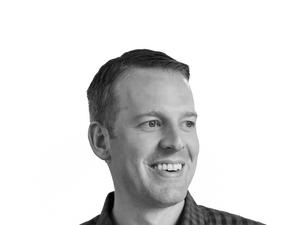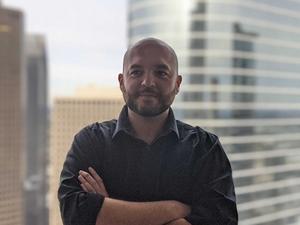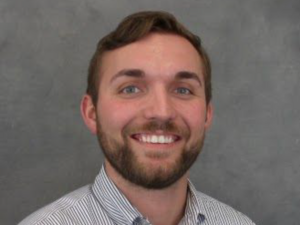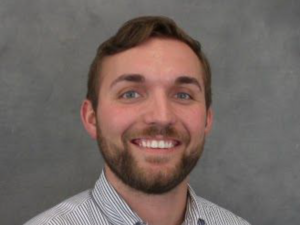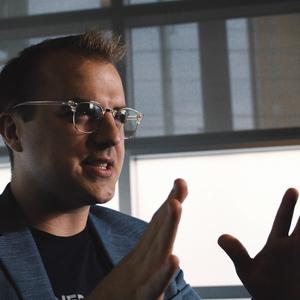Approximately 90% of startups fail.
Yet, these failures are infrequently talked about beyond the confines of closed doors and off-the-record conversations.
The Magic City is not exempt to the sometimes harsh realities of the startup world; within the past year, three Birmingham startups — Fledging, Datalus and Funnelfly — closed their doors, among others.
But founders and leaders at these three companies are flipping the script, and sat down with the BBJ to discuss something many can't find the courage to do.
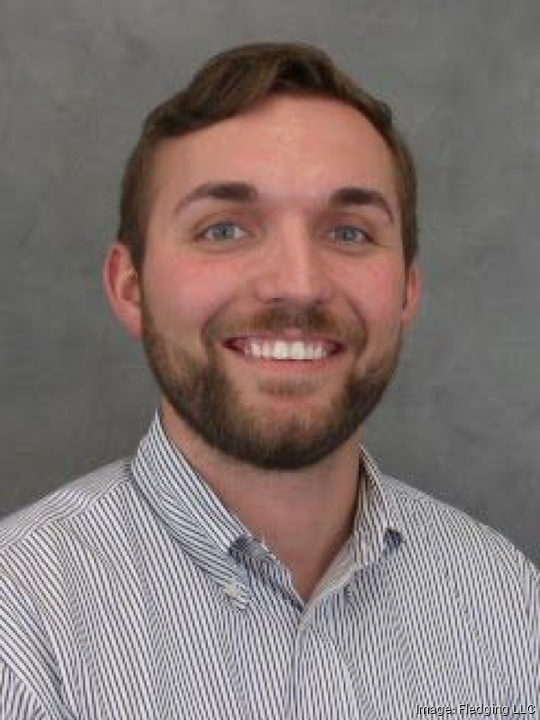
Fledging: A $9 million education
Fledging was a local consumer electronics startup with offices in Birmingham, Dallas and even Shenzhen, China. It shuttered in December 2022, citing challenges spurred by the Covid-19 pandemic and its consequences on supply chains, consumer spending, access to capital and the labor market, as well as founders exiting for personal reasons.
During its operation, the company created some award-winning products, and highlights included building relationships with major partners such as Motion Industries, Blue Cross Blue Shield of Alabama and Protective Life and landing distribution partnerships in the U.S., the EU, the United Kingdom, Japan and Australia.
Former Fledging CEO Ethan Summers was ultimately the one to shut off the lights at the company after deferring his own salary for some time. Summers said he looks at it as an "$8 or $9 million education" — Fledging took on venture capital, and in the end, it generated more than $6 million in revenue.
"Journey-wise, it would be so easy to sit here and pretend it was this nice straight line from where we started to where we are, but really, it was the opposite," he said.
Summers inherited Fledging in the summer of 2020 from the company's original founders, who no longer wanted to be part of the startup. At the time, the startup had 10 salaried employees.
"For me, it was really more about 'Can we take care of this team? Can we honor the investors' commitment and just give this an actual shot?'" Summers said. "So I had a lot of really big hopes as we went in, and we were able to accomplish a lot, but the failure points started racking up kind of quickly."
Everything from worker strikes to even the container ship that got caught in the Suez Canal in 2021 impacted Fledging negatively.
"When we finally made the decision to shut down, it was very much this peculiar sense of 'We have really achieved some absolutely amazing looking back, considering the Covid environment and the uncertainty and the delays.' But even for all our best efforts, we made a couple of key mistakes and we still failed."
Summers said it was difficult at first for him to contend with the idea that a company could get 90% of everything right, but ultimately still fail in the long run.
"You don't start a business or launch something new ever thinking it's going to fail," he said. "I think entrepreneurs are a little unique in that we are pretty good at what we do and we've created success before, so we understand that failure is real, but I think for a lot of us we get the saying in our head of 'That won't be me.'"
But Summers said, despite risk of failure, if someone has an idea they are passionate about or that might make the world a better place, they should do it, adding "just because it's hard doesn't mean it's not worthwhile."
He cautioned entrepreneurs, however, to be aware of their blindspots.
Ultimately, his openness regarding Fledging's closure is a bid to help others who went through something similar. When Fledging closed, Summers posted an open letter on social media outlining the reasons for the startup's closing and lessons learned, and the community responded in a big way.
"I probably received 100 direct messages, calls texts and emails from founders and investors just saying, 'I can't believe you shared like this, and I wish I'd shared more in my last failure. I wish people had supported me in my last failure.' And it was just really humbling," Summers said.
Sharing can make others feel less isolated, he noted, adding isolation is a big issue in the startup space.
"The other side of startup culture can be kind of gilded," Summers said. "You hear about all these companies that are allegedly raising big rounds and closing clients. Everything's going well. And then you have a couple of beers with a founder and they're like, 'We're running out of money in two weeks,' or 'I haven't gone on vacation in five years,' or 'I'm really having a hard time with my spouse or partner because I'm working 80 hours a week.'"
There is a balance, Summers said, between holding out until the end and taking a risk that may pay off, and holding out because they aren't ready to give up.
"Is it a real long shot or is it just you not wanting to give it up because it's emotionally hard? If it's a real long shot, swing for the fences. Go for it. If it's just you not wanting to give it up because it's hard you need to keep in mind there's a big downside," he said.
Today, Summers is serving in the c-suite as chief of staff at Empirix Partners.
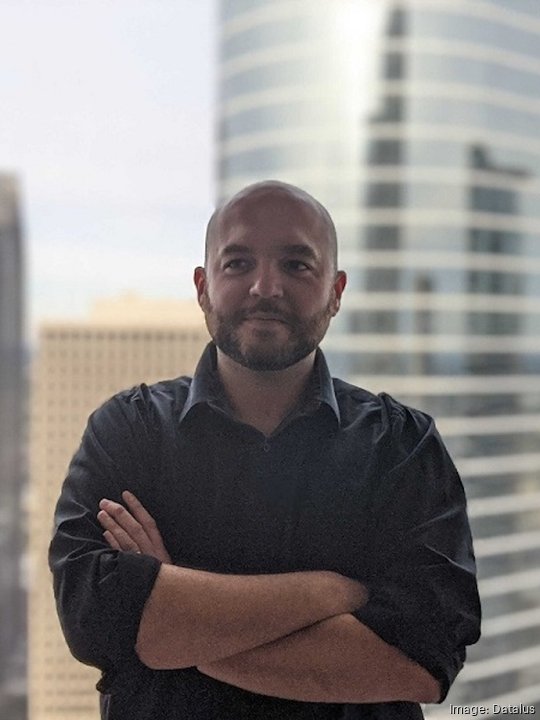
Datalus: A death party
"Nobody talks about the failure, but I think that's starting to change," said Mikhail Kozorovitskiy, founder of the now-closed Birmingham tech startup Datalus.
The business aimed to give people the power to sell their own data to companies and make extra cash, but it ran out of funding and Kozorovitskiy was not able to continue self-funding the venture. He announced the closure on Dec. 6.
Today, Kozorovitskiy is head of operations at Hedgehog, a west coast startup that he said is doing well, has signed its first customers and recently presented at the AI Tinkerers' meetup in Seattle.
He said Datalus' closing did not deter him from working in the startup realm for several reasons, including the understanding he has a chance to make more money working for himself, joking he is motivated by 'Ferraris and private jets.'
But Kozorovitskiy's biggest takeway for Datalus? Don't do it alone.
"There are going to be a lot of negative forces that tell you, 'This is dumb,' or 'Don't do this,' and having people around you who are pushing toward the same goal can really counter that, because otherwise, if you're at it alone — like I was for most of it — there's no one else to counter the voices either outside or in your head saying, 'maybe it's a bad idea,'" he said.
When Datalus closed, Kozorovitskiy was thrown a "death party" by other local startup founders and entrepreneurs, celebrating the life of the company.
"I think it was a cathartic experience for me, but also a learning one," Kozorovitskiy said. "To prepare for the death party, I wrote out all the things I could have done better, because, in the end, I spent a year and a half working on this company. It cost me a lot money personally, and I didn't want to quit. As a startup founder, I don't think anyone ever really wants to quit ... When it was time to give up, I wanted to make sure that I learned from the experience."
At the death party, Kozorovitskiy burned a piece of paper with the failures written on it.
"That's how I ended it," he said. "I had a great time with a bunch of friends, a bunch of ecosystem co-founders, and then I figured out what I was going to do next."
Kozorovitskiy's advice: don't be too quick to pay for services, think carefully hiring family and friends and be focused, but not too focused to recognize when to pivot. The absence of positive feedback can be a sign, he added.
"You're gonna fail, probably. Maybe not, but use every failure as a learning opportunity to get better next time," Kozorovitskiy said.
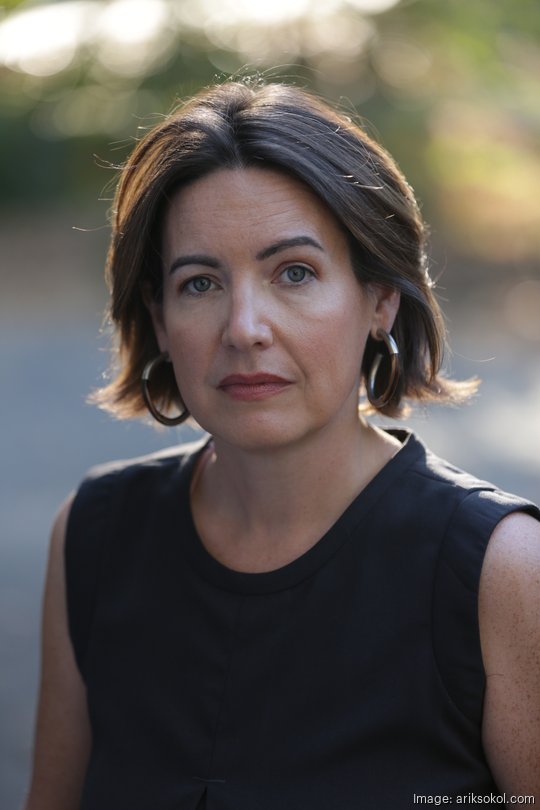
Funnelfly: 'Remember your why'
Funnelfly, a Innovation Depot-based startup, aimed to help companies grow faster by creating, optimizing and automating their email campaigns.
The marketing automation platform, launched in 2020, closed in January. The company's last CEO, Laurel Mills, unveiled the closing in a LinkedIn post, writing she learned a lot but was pursuing other opportunities.
Today, she is working in digital marketing Ssrategy for Apex Roofing & Restoration, and still plans to run a media company one day.
"With entrepreneurship, as well as anything really, I've learned that it's the human connections that are always most important," Mills said. "I believe you have to treat people — whether they're investors, teammates, customers or peers — with the same respect and integrity you hope to be on the receiving end of."
Mills encouraged founders to "keep their sense of humor."
"Nothing can be fun all the time, but it shouldn't be miserable all of the time either," she said. "I think the standby advice to 'remember your why' is as important for founders when they look in the mirror as it is for founders when speaking to potential customers and investors."
And as for the risk of failure?
"Startups fail, but so do so many other businesses," Mills said. "I think the nature of most of what we do is wildly unpredictable undertakings punctuated by our efforts to pretend that we have some kind of control over our fates. ... The truth is that anything could fail, but anything could also be wildly successful. You never know if you don't try."
Mills added there is value in normalizing failure.
"When I first started writing, I had these ridiculous expectations that I was going to somehow produce The Great Gatsby on my first go-round," Mills said. "I felt immense relief when I realized that most writing I admire is the result of many, many drafts and revisions, and also that if I did, by accident, replicate Fitzgerald right off the bat, it still wouldn't be worth anything because the goal was to find my own voice."
Setups not setbacks
The resounding sentiment among startup veterans is that failure is a part of the process.
Outside of the startup ecosystem, however, people may struggle to understand that.
"Be careful in how you talk about your failures to those outside the ecosystem," Kozorovitskiy said. "It's a weird duality. In the ecosystem, failure's accepted. It's more or less a safe space because we understand that we have to learn from your failures. Your family may not think that same way."
And a startup founder does not have a closed venture to experience and learn from mistakes.
"We've learned a lot, and that's come with our share of face plants and lessons and missteps and mistakes," said Jennifer Ryan, CEO and co-founder of fast-growing local hospitality industry startup Croux. "I think what we're doing as a team is really trying hard to be open and vulnerable about where we're making mistakes to rectify them quickly because we're startup and we're learning."
She added challenges "aren't happening to you, they're happening for you."
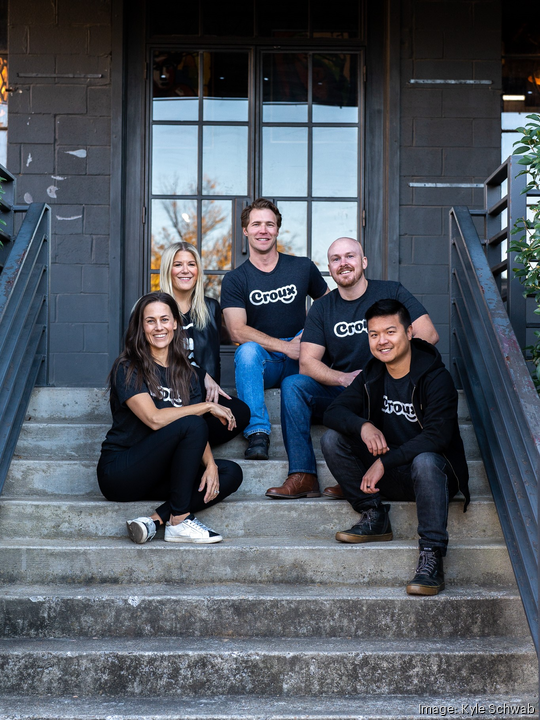
"You can shift your mindset to recognize challenges aren't setbacks, they're setups," Ryan said. "They're setups for an opportunity, they're setups for a learning moment and they’re setups for some sort of a pivotal change or personal growth."
Her advice for others is to validate assumptions before assuming something will be useful to the community.
“That was a big lesson, because we made assumptions, we built things that we thought were going to be game-changing. And it turned out we needed to do more listening," Ryan said. “That's how we think about falling on our faces, getting back up and doing better than next time, because, frankly, that's all we can do. If we don't learn from our mistakes, it's an unfortunate position, because we’ve missed an opportunity to grow.”
And the strategy can change along the way.
Kellie Clark, former CEO of Birmingham startup AppThink, said the company's go-to-market strategy shape-shifted a number of times.

"While I was in it, the changes and pivots at best, felt inefficient, at worst, felt double minded. But with each pivot, we got closer to a strategy that resonated with customers," she said.
While playbooks and frameworks make venture building seem akin to architecture, Clark likened it more to gardening, as there is a required amount of error and inefficiency needed to learn.
"An adjustment in messaging here, a revision to your customer persona there, these regular alterations to your business model are signals that your team is learning, not that you’re indecisive," Clark said.
The journey is a process.
"When we are creating rather than emulating, it's going to take some time and effort," Mills said. "As a parent, I also see how frustrated my children are when they aren't immediately good at something new. I'm always reminding them that no one is good at anything right away, and that no one ever got good at anything by giving up. In other words, you have to fail in order to succeed, so the goal is to keep going. I try not to think of it as failure, but rather as a few — hundred? — first drafts."
